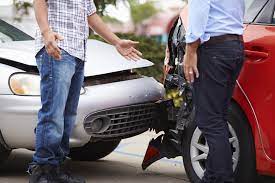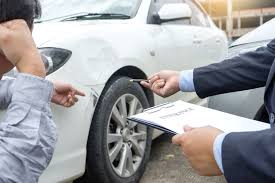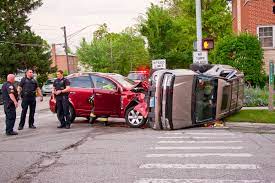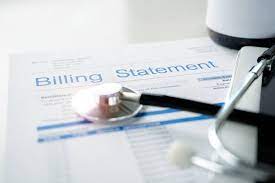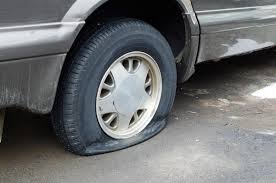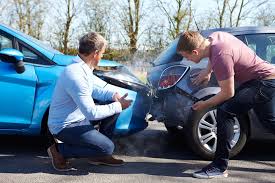What is the average settlement for a minor car accident; The average settlement for a minor car accident is determined by a number of factors, including who is at fault, what injuries were sustained, and what property damage was caused by the accident. If you have been injured in an automobile accident or have experienced property damage due to another person’s negligence, it’s important to know how much you can recover from them through a lawsuit.
Who is at fault for the accident?
When you’re involved in a car accident, it can be difficult to figure out who is at fault. Your insurer will investigate the incident and determine whether you (or the other driver) were negligent. This does not necessarily mean that one party was 100% responsible for the accident; rather, both parties might share some responsibility for what happened.
If a driver can prove that another driver was negligent, they may be entitled to compensation for any injuries they suffered as a result of that person’s negligence. In order to prove negligence, there must be proof:
- The driver violated either state traffic laws or did something that deviated from reasonable care while driving under normal conditions;
- This violation caused injury or property damage; and
- There was a direct causal relationship between the violation and its consequences.
What Injuries did you sustain in the accident?
The severity of your injuries will determine the amount of compensation you can receive. If you were hospitalized following the accident, and especially if it was for a long period of time, then this will be taken into account when determining how much money is due to you. In addition, if your injuries have caused any permanent damage or disfigurement, then this too will be taken into account.
The amount of time that you are out of work due to your injuries will also be considered when determining whether or not there is enough evidence to prove that another driver was at fault for the accident. If you were off work for an extended period after experiencing medical problems related to the incident (and even if those issues weren’t severe), then it may be easier to claim damages from another party than in other cases where people were only temporarily injured and returned quickly back into their normal routine.
What type of property damage was caused by the accident?
It is important to know what type of property was damaged in the accident. If the collision was your fault, you will have to pay for the damages. However, if the other driver was at fault, you may be able to file a claim against their insurance company. If a driver hits your car and causes damage to it, this could be considered an “accidental injury”. In this case, you would have no legal obligation or responsibility for paying for repairs unless agreed upon by both parties in writing prior to signing any contracts related with transportation services provided or sold by [company name].
Was there any permanent disability or disfigurement caused due to the accident?
The next question that you should ask is whether or not you suffered any permanent disability or disfigurement due to the accident. If your injury was so severe that it made it difficult for you to do your job, then you can get more money in a settlement.
If there was no permanent disability or disfigurement, then you can get less money in a settlement because your injuries were not as serious as they could have been.
What medical treatment was required after the accident?
- Was the victim taken to the hospital? If so, what treatment was required?
- Did he/she require surgery? Was there a significant amount of blood loss?
- How long were they in the hospital, and how many days were they out of work due to injuries?
In some states, such as New Jersey, you have to suffer a permanent injury in order to collect compensation after a car accident.
If you suffer a permanent injury, you may be able to receive compensation for your medical expenses and lost wages. However, if the injury does not cause any long-term effects or disabilities, then you will not be able to collect money from the insurance company.
You should also know that some states have certain requirements when it comes to collecting compensation after an accident. In New Jersey, for example, you must have suffered a permanent injury in order to be eligible for compensation after an accident. This means that if your injuries were temporary and healed within six months of being treated by a doctor (or sooner), then it’s unlikely that an insurance company would pay out on your claim.
The amount of your medical bills can affect how much compensation you get for your injuries.
Medical bills are a major part of any personal injury claim. Your medical bills can be used to determine the severity of your injuries and therefore, how much money you need to recover from those injuries. If you have had no medical treatment yet because the accident was minor and there were no injuries, then there will be no medical bills. But if you’ve gone to the doctor multiple times or if you’ve been hospitalized, then it’s likely that your medical bills will be larger than average. The more severe your injuries are, the more likely it is that these expenses will affect how much compensation you get for them in court.
As with any type of personal injury lawsuit, you need to be able to demonstrate that another person’s negligence caused you harm.
When filing a personal injury lawsuit, it’s important to establish that another person’s negligence (or wrongful conduct) caused you harm. This can be a difficult task when dealing with minor car accidents, especially because they usually don’t result in serious injuries or death. Here are some examples of what may happen if you’re involved in an accident:
- Your vehicle spins out of control and crashes into a nearby tree as you attempt to avoid colliding with another driver who was speeding through an intersection. The impact crushes your car’s front end against the tree trunk and causes significant damage to both vehicles involved. You may be able to prove that this other driver was at fault for driving too fast and failing to stop at the stop sign on their way through the intersection, but this doesn’t necessarily mean they were negligent or reckless enough for their actions to warrant compensation from them personally or from their insurance company for your damages related to the accident (e.g., medical bills).
- While driving down an empty road near sunset, another driver swerves across lanes without signaling first—perhaps due to distraction; perhaps due to fatigue, and slams into your side door before hitting theirs own rear quarter panel against yours during impact.
The amount of compensation that an injured person can get from a car accident claim depends on many different factors
The amount of compensation that an injured person can get from a car accident claim depends on many different factors. The severity of your injuries, the amount of medical bills you have, the laws in your state and how much time you were out of work all play a role in determining how much money you can receive from your settlement.
A settlement is simply an agreement made between two parties who are involved in some type of dispute or disagreement over money or property. In this case, the two parties being discussed would be the person who was injured by another driver’s negligence (the victim) and someone else (usually their insurance company).
The average settlement is determined by a number of factors, including who is at fault, what injuries were sustained, and what property damage was caused by the accident.
The average settlement is determined by a number of factors, including who is at fault, what injuries were sustained, and what property damage was caused by the accident.
In general, a minor car accident that results in very little damage to either vehicle will likely result in an insurance settlement of less than $5,000.00. If the accident caused injuries or death to one or more parties involved in it (including passengers), you can expect your settlement to be higher than this amount.
Conclusion
A minor car accident can be a stressful event, especially when you’re trying to figure out who is at fault and how much compensation to ask for. However, if you have all the information available about your injuries and property damage, it will be easier for your lawyer or insurance company to determine the value of your claim.

